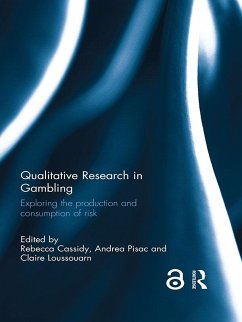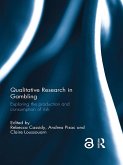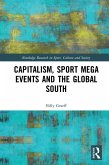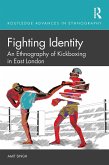Gambling is both a multi-billion-dollar international industry and a ubiquitous social and cultural phenomenon. It is also undergoing significant change, with new products and technologies, regulatory models, changing public attitudes and the sheer scale of the gambling enterprise necessitating innovative and mixed methodologies that are flexible, responsive and 'agile'. This book seeks to demonstrate that researchers should look beyond the existing disciplinary territory and the dominant paradigm of 'problem gambling' in order to follow those changes across territorial, political, technical, regulatory and conceptual boundaries.
The book draws on cutting-edge qualitative work in disciplines including geography, organisational studies, sociology, East Asian studies and anthropology to explore the production and consumption of risk, risky places, risk technologies, the gambling industry and connections between gambling and other kinds of speculation such as financial derivatives. In doing so it addresses some of the most important issues in contemporary social science, including: the challenges of studying deterritorialised social phenomena; globalising technologies and local markets; regulation as it operates across local, regional and international scales; and the rise of games, virtual worlds and social media.
Dieser Download kann aus rechtlichen Gründen nur mit Rechnungsadresse in A, B, BG, CY, CZ, D, DK, EW, E, FIN, F, GR, HR, H, IRL, I, LT, L, LR, M, NL, PL, P, R, S, SLO, SK ausgeliefert werden.









